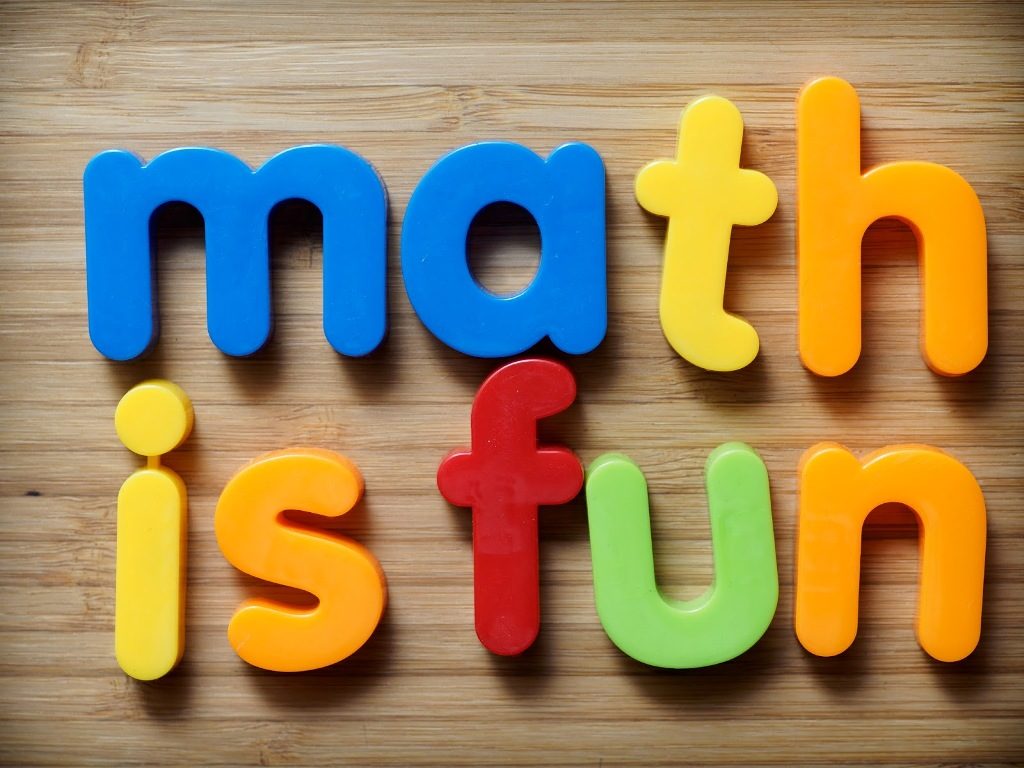How to help your child to develop an interest in math
 Develop an interest in math is vital to its success, because students tend to perform better if they want to, rather than they have to.
Develop an interest in math is vital to its success, because students tend to perform better if they want to, rather than they have to.- The problem facing most students, is that they often get caught up, in learning the materials, or preparing for tests, or scoring for marks. They never step back and think about “why am I doing this?”
- They rarely look or read beyond the classroom, and think that math is limited to what they see everyday in classroom. On the other hand, math has a compelling historic development, leading to different modern fields such as Einstein Relativity, explanation of the Universe, computer systems, architecture, chemistry and more.
- Occasionally students get into frustration in math, asking: “when will we ever going to use this?” This is an indication that they are frustrated by the mechanics behind math, and is confused by the practical usage of math in real life, or their life.
- I am writing this article to advice on how to build interests in math for your child. The earlier they build this interest, the better, because this is critical to inspire his motivation.
The key to build interest in math is:
1) broaden your child’s knowledge 2) align math with your child’s personal interests 3) Put math as a step to attain their goals
1. Broaden your child’s knowledge
– Students often find math “dry” because all they learn from school is a series of rules and applying them to numbers or variables. Textbooks have an “application” section in most chapters, which implies real life problem solving examples. However, from the point of view of the students, they are merely word problems which make their life harder. They simply can’t enjoy it.
– The way to address this is to broaden your child’s knowledge, by introducing a series of interesting reading materials.
– Have your child ever question why the Universe runs in a certain way? And how does time and space work? Albert Einstein has written a book about his idea on Relativity, in layman language, which explains his concepts of the Universe. Steven Hawking and Richard Feynman, two of the greatest scientists since Einstein, had written about the Universe, again in layman language. So your child doesn’t need to solve Relativity equation or to master complex mathematics, in order to understand the basic idea. These ideas will further stimulate his interest to explore math further, because ultimately to fill the void behind the basic understand, he needs the math knowledge.
(Einstein book: Relativity, the Special and the General Theory)
– (Stephen Hawking book: A Brief History of Time)
(Richard Feynman: Six Easy Pieces: Essentials of Physics Explained by Its Most Brilliant Teacher)
(on YouTube, you can search for “Richard Feynman Lecture on Physics”, or buy that on CD)
– Your goal is to develop your child’s knowledge beyond the classroom. Emphasize that they will become smarter and, by spending extra time in developing their interests.
– I recommended some of these books to my students, one of whom (grade 10) asked her math teacher interesting questions in their geometry class. (“three angles in a triangle might not add up to 180 degrees, if you are on a “curved space” – a sphere, rather than a flat surface”). Of course, the teacher is very impressed, whereas the student has stronger drive to acquire more knowledge.
– Is your child interested in computers or programming? You can introduce them to programming language such as C or Java. Have him try to build simple programs or their own webpage using HTML. The process is self-gratifying, because they can visualize their creation on the screen. Computer programming involves logic, which can develop their ability and appreciation to math, because these logics are based on math.
– Your child might have other interests. Perhaps they like biology, or chemical processes, or architecture. You can research on the types of books that they can understand, and introduce them to your child. Show them what they can do by mastering math. For example, if your child is interested in architecture, math and physics are important building blocks. Designing a curvy building looks great, but can the structure sustain the weight? How can you design it so that it can? In many cases, they will begin to appreciate the importance of math.

2. Align math with your child’s personal interest, develop their curiosity
– when some of my students are bored of math, and wonder why they have to go through it, I often interrupt and ask them if they like video games.
– Their (boys) answers are of course “yes”. I then ask them, in order to make that 3D graphics, or a 3D character to move across the screen, have they ever wonder what is required? I use an example to explain there are tens of millions of polygon that are snapped together to create the 3D figure, like wallpaper, and the computer has to calculate how each triangle coordinate move to the next spot, millions of the at the same time. And guess what this involves? Coordinate geometry / transformation / matrices! (That’s what they are getting bored at the moment. I then talk to them into games programming and how math plays a crucial role in it.
– It is important to relate math to what your child likes in his everyday life. Maybe they use Facebook everyday. You can talk to them – do they ever wonder how the computer systems in Facebook, can service millions of users at the same time, each browsing a different page? And what is required for the computer system to do, if the users coming in is random, and what they do cannot be predicted?
– Almost every teenager nowadays uses a cell phone. Have your child ever wonder how to transfer the voice or a picture over the air? It involves “cutting down” the speech “graph” into “chunks”, and digitize it, then send the numbers over the “frequency domain” in the air.
– There are many “simple” things that a student does everyday, without realizing the complexity and the mechanics behind it. Be it making a call, checking out Facebook, playing a video game, or traveling across a bridge (i.e. how can a bridge sustain the weight of a car, and how many cars can it hold?). It is important to develop your child’s curiosity, ask questions, and dig deeper. Asking why can in fact motivate them to search, and could find out what really interest them. In many cases, whether it is the Universe or Nature or making a call, math is behind many of the mechanics.
3. Put math as a step to attain their goals
From my experience, students who have a clear goal generally perform better. Does your child have an idea for his future? To become an entrepreneur, financier, a doctor, or a teacher? Very often when a student approaches grade 12, he will have a clearer idea which field he has to enter. Stress the importance of math, as a step to get into their dream university programs, and that they have to work hard now to attain it!
For instance, I have a student who wants to get into Commerce, and asked me when he would ever need to use Calculus in his future career. I told him he is right that in some cases he might not encounter calculus again after first year. But the important point is, Calculus is like a “step” to his dream program. He also needs the solid knowledge to survive through first year Calculus, which most universities require.
In fact, for most Canadian university programs, except for arts or social science, require Grade 12 Advanced Functions as one of the top 6 averages. Very often students don’t realize this until grade 12. They also don’t realize that doing well in grade 12 math begins in grade 10.
The important point is, once your child demonstrates an interest in a certain field, align math to that interest, and demonstrate math as a necessary step to accomplish their dreams. (Except if they want to be in the Arts, social science or design area). Display a vision to him: that he will successfully compete with thousands of students, aided by his high average in math, to get into the program with other smart students. This can motivate them to stay focus and persevere early on.
